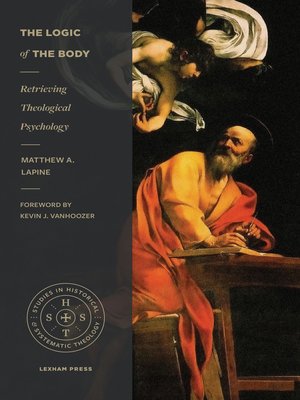The Logic of the Body
ebook ∣ Retrieving Theological Psychology · Studies in Historical and Systematic Theology
By Matthew A. LaPine

Sign up to save your library
With an OverDrive account, you can save your favorite libraries for at-a-glance information about availability. Find out more about OverDrive accounts.
Find this title in Libby, the library reading app by OverDrive.



Search for a digital library with this title
Title found at these libraries:
| Library Name | Distance |
|---|---|
| Loading... |
"Do not be anxious about anything."
When it comes to stress and worry, that's all we really need to say, right? Just repent of your anxiety, and everything will be fine.
But emotional life is more complex than this.
In The Logic of the Body, Matthew LaPine argues that Protestants must retrieve theological psychology in order to properly understand the emotional life of the human person. With classical and modern resources in tow, LaPine argues that one must not choose between viewing emotions exclusively as either cognitive and volitional on the one hand, or simply a feeling of bodily change on the other. The two "stories" can be reconciled through a robustly theological analysis.
In a culture filled with worry and anxiety, The Logic of the Body offers a fresh path within the Reformed tradition.
When it comes to stress and worry, that's all we really need to say, right? Just repent of your anxiety, and everything will be fine.
But emotional life is more complex than this.
In The Logic of the Body, Matthew LaPine argues that Protestants must retrieve theological psychology in order to properly understand the emotional life of the human person. With classical and modern resources in tow, LaPine argues that one must not choose between viewing emotions exclusively as either cognitive and volitional on the one hand, or simply a feeling of bodily change on the other. The two "stories" can be reconciled through a robustly theological analysis.
In a culture filled with worry and anxiety, The Logic of the Body offers a fresh path within the Reformed tradition.







